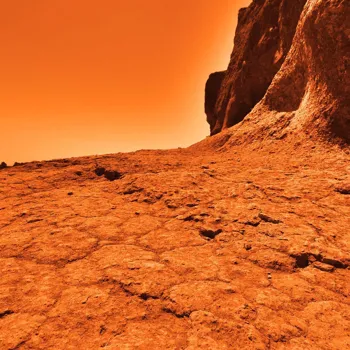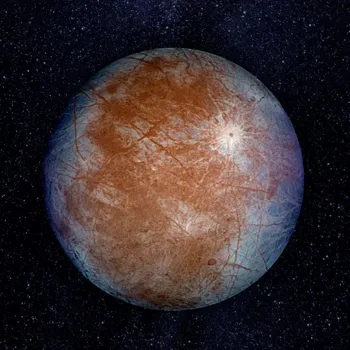Unveiling the Unknown: The Fascinating Search for Alien Life. Dive into the thrilling discoveries and challenges beyond Earth's realm. Discover what scientists are uncovering and how it's reshaping our
perspective on existence. Explore the quest that's rewriting our cosmic narrative
The quest to discover life beyond our pale blue dot, Earth, has captivated scientists and dreamers for decades. What was once relegated to science fiction is now a serious field of scientific inquiry, fueled by groundbreaking discoveries and advancements in technology.

From the depths of our own oceans to the far reaches of distant galaxies, the search for extraterrestrial life is uncovering exciting possibilities and challenging our understanding of what life truly means. We are learning more about the universe.
We are learning more about what it means to be alive.
Scientists explore planets in habitable zones for life signs
Scientists are exploring various avenues in their quest. One approach focuses on identifying planets within the "habitable zone" of stars, often referred to as the Goldilocks zone.
These are regions where temperatures are just right to allow liquid water to exist on a planet's surface, a crucial ingredient for life as we know it.
NASA's Kepler Space Telescope and now the James Webb Space Telescope have been instrumental in discovering thousands of exoplanets, planets orbiting stars other than our Sun, some of which reside in these habitable zones.
Examining their atmospheres for biosignatures, gases produced by living organisms, is another key area. Oxygen, for instance, is a strong indicator of biological activity, though it could also arise from non-biological processes.
Methane is another gas that can be produced by living creatures, such as cows and sheep.
Exploring extremophiles on Earth for potential extraterrestrial life
Another fascinating area of investigation involves exploring extreme environments on Earth, such as deep-sea hydrothermal vents and Antarctic ice sheets. These locations are home to extremophiles, organisms that thrive in conditions that would be lethal to most life forms.

Studying these creatures provides insights into the kinds of life that could potentially exist in similarly harsh environments on other planets or moons.
Places like Mars, with its cold, dry surface, or Europa, a moon of Jupiter believed to have a subsurface ocean, are prime targets for this type of research. These organisms could provide evidence of the possibility of life on those planets.
It would take a very small organism to survive in the harsh environment of another planet.
Discovery of liquid water on Mars and moons hints at extraterrestrial life
The discovery of liquid water beyond Earth is always a major milestone. While Mars currently has a thin and cold atmosphere, evidence suggests that it once had liquid water on its surface.

NASA's rovers and orbiters continue to analyze Martian soil and rocks for signs of past or present microbial life.
Europa and Enceladus, a moon of Saturn, are particularly intriguing because they both have subsurface oceans that are thought to be in contact with rocky mantles, potentially providing the necessary conditions for life to emerge.
Plumes of water vapor have been observed erupting from Enceladus, offering a potential way to sample its ocean without having to drill through miles of ice. Finding water is always the key to finding life on other planets.
Scientists search for alien signals with SETI, facing vast challenges for potential groundbreaking contact
The search for extraterrestrial intelligence (SETI) takes a different approach, focusing on detecting signals from intelligent civilizations.

Scientists use radio telescopes to scan the skies for signals that are artificial in origin, meaning they couldn't have been produced by natural astronomical phenomena.
The challenge is immense, given the vastness of space and the potential for alien civilizations to use communication technologies we haven't even imagined yet. However, the potential rewards are immense too – contact with another intelligent species.
Finding life like that is going to take a long time. The universe is very old and this would be like finding a needle in a haystack.
Search for alien life shows promising discoveries, reshaping cosmic understanding
While the search for alien life has yet to yield definitive proof of life beyond Earth, the discoveries made so far are incredibly encouraging. We now know that planets are common throughout the galaxy, and many of them reside in habitable zones.

We are also learning more about the resilience and adaptability of life, as seen in extremophiles on Earth. As technology continues to advance and our understanding of the universe deepens, the chances of finding life beyond Earth are only increasing.
The real question is not if we will find life, but when. It is only a matter of time. The quest continues and, like all great explorations, promises to reshape our understanding of our place in the cosmos.
AI Generated Content. Glance/InMobi shall have no liability for the content












